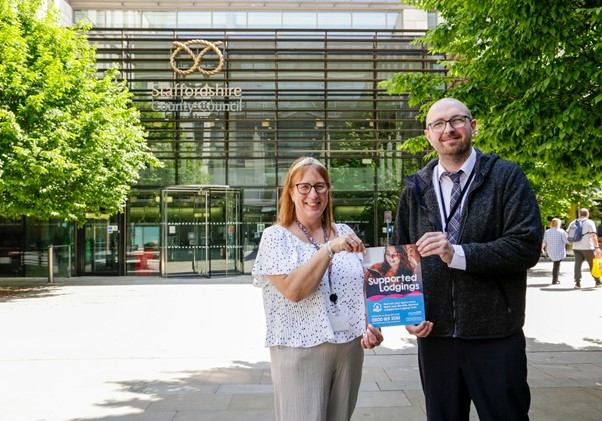Alex - Supported Lodgings Host

I purchased my first property when I turned 30 years old. Ialways knew that I would have roommates or lodgers to help me with the financial costs of managing a house. My sister then dragged me to an information evening with Foster for Staffordshire as she was interested in becoming a foster carer. The scheme ‘supported lodgings’ was mentioned and I became very interested as it allowed me to continue working full time whilst offering young and vulnerable individuals a safe place to build their confidence and independence. I reflected on what was required of me as a host and if I would be able give the time required to support someone who was just starting their adult life. I soon realised I wanted to help if I could, so I submitted the application.
The support from Foster for Staffordshire has been great. They offer a wide variety of training courses which I found very beneficial in the role. I’m allocated a worker who I can contact about any issues and the young people that reside with me have social workers and personal advisors (PA), so if I need any guidance someone is always available.
I have been a supported lodgings Host for three to four years and since then I have learned a great deal about the young people that come into the service and the challenges they are facing. I like to think my home is somewhere they feel safe and secure whilst they learn general day to day skills such as cooking, cleaning, laundry, general household maintenance, budgeting and shopping. If they need someone to speak with, I will listen and offer advice and guidance but again I will keep the social worker and PA informed as they can support with the more complex discussions and support. I’ve had eight lodgers since I started and I hope that the placement has helped the young people prepare for later life.
If you are reading this and are thinking about becoming a supported lodgings host then I have a few recommendations:
- When you get accepted as a host, go to some of the training sessions, specifically the sessions under ‘Foundations to Fostering’ in the training catalogue as these are informative and you will get to hear the experiences of the other attendees. The training will also help you manage some of the additional needs and behaviours the young person will exhibit throughout the placement.
- The placement team will match you with a potential lodger, however make sure you read the young person’s file thoroughly and ask to speak with the social worker so you can ask any questions before accepting the referral. Refusing the placement is not a bad thing as they would rather you accept a placement you feel you can manage than risk a placement breaking down.
- When the young person arrives speak with them about your household rules and include them and the social worker in the rule arrangements as this will give everyone an opportunity to discuss the rules so they are clear from day one of the placement.
- Meetings are planned out normally every six weeks so make sure your availability is noted to the social worker of the young person so they can work around your timetable. I work full time so I make sure the meetings are planned around my work rota.
- When you are in the role you will be allocated a worker from the fostering team and you can ask for a mentor who is an experienced supported lodgings host in the area, so you will never be alone if you need advice.
- Make sure you find time for yourself to meet your own needs both physically and mentally. I do this by swimming or going for a walk.
Qualities that have helped me engage with the young people are kindness, keeping calm, optimism, empathy, sense of humour, negotiation skills, listening skills and so on. If you have any of these qualities, I am sure you will be a fine host so I hope this blog has not put you off!
This role has been very rewarding for me and I would like to see this service thrive as it does help those who are ready to start building on their future and independence.
Want to join Alex? Why not enquire today and find out more.